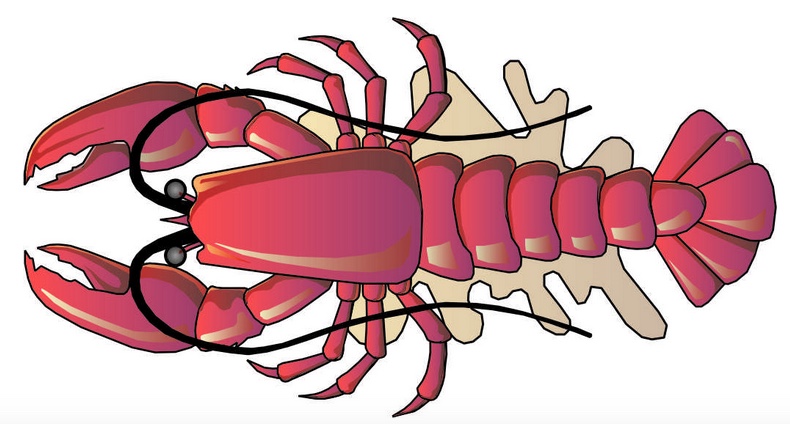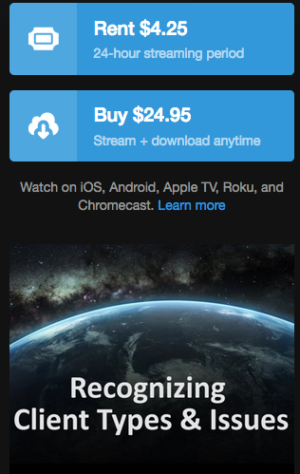
by Susanne Beck | Leadership
The lobster fishery has been a way of life for generations of families in sea-side communities. It has literally put food on lots of tables.
Over the years, the perception of the value of lobster has changed. Lobster hasn’t always been considered a treat; far from it.
Generations ago, it was embarrassing for a kid to bring lobster to school. A lobster sandwich conveyed the message, “We can’t afford to buy filling for our sandwiches; we have to eat lobster.” Lowly lobsters were perceived as trash, tossed in the garden for fertilizer.
How’s lobster perceived now? It’s a delicacy in restaurants. It’s packaged for travel. It’s no longer perceived to be the food of the poor.
But it’s still lobster. It still looks, tastes, and smells the same as it did generations ago. The lobster hasn’t changed. What did?
The perception of value has changed. Why? Part of that change may reflect supply and demand. However, it seems that there was also a perceptual change similar to what happens in fashion. Clothing, jewelry, shoes—they are all vulnerable to going “in” or “out” of style. A brand name hits the right promotional tone, becomes the hot thing; everyone wants it, price goes up.
Then that brand is ousted by a different brand and your expensive sweatshirt, purse or coat becomes so “last year.” The product hasn’t changed. The material, the design, the workmanship is still there. But now it’s worth a fraction of its former value.
Let’s take those questions of value into a bigger picture. Consider the objects that you value. What makes them valuable to you? Is it the purchase price? The usefulness? The memories it evokes?
Does something take on higher value if it’s celebrity-endorsed? Does something take on a higher value if others wish they had it? If you lived in the wilderness with no one to impress or to envy, would you still value the object?
Does your perception of an object’s value depend on how valuable others believe it to be? Or do you perceive the value based on your personal criteria: usefulness, effectiveness, whatever is important to you?
Now, let’s consider the value of ideas and opinions.
When you hear an opinion, does your perception on whether it’s right or wrong depend on who is voicing it? Does it depend on how popular it is? Does it depend on whether it’s promoted in media or by thought leaders? Or do you decide based on your own criteria: your principles, beliefs, and critical thinking skills?
Do you question why some opinions are promoted, while others are ridiculed? Do you wonder whether some prevalent opinions of the day are fundamentally sound, or are they, like the value of lobster, based on perceptions?
Whether it’s products or ideas, when we let others define value for us, we give up an important freedom.
If you have lobster sandwiches in your lunch box, how concerned would you be that others might judge you?

by Susanne Beck | Leadership
When traveling with kids (or some adults), you’ll hear a repetitive chorus of, “Are we there yet?”
If you are the driver, you may choose to find that annoying.
However, put yourself in the position of the passenger-child for a moment. They have no control over where they are, and they probably have little information about what is to come. From their perspective, it’s just one endless boring kilometer after another. When will it ever end?
We go on many journeys throughout our lives; not all of them involve travelling. Some journeys involve career, education, marriage, house-building, child-raising. Other interests have destinations too, whether you want to become a master chef, woodworker, or more physically fit.
Any of those journeys can be long. They may have tedious dull sections interspersed with moments of panic, and they will likely include a few setbacks, U-turns, and some confusing directions.
Whenever we embark on a big goal, “Are we there yet?” is a worthwhile question. And while it may be clear that the answer is “No, not yet,” having a little information can make the experience more fun and satisfying for everyone involved in or touched by the journey.
Think about a scavenger hunt. Why is that fun? Part of the entertainment is that you get feedback as you go—you know that you are making progress as you find treasures along the way.
For a road trip, try choosing landmarks along the way that break the trip up into manageable chunks. Seeing and sharing checkpoints along the way provides feedback. When everyone sees the mastodon on the ridge, or the giant welcoming blueberry, or even a favourite rest area, they know where they are in relation to where they are going. Progress is happening!
Simply knowing that you are headed in the right direction and getting closer to your goal can be remarkably satisfying.
This idea of making and communicating incremental progress is helpful for all kinds of “journeys” in life. Most anything that has a goal can be broken into sub-goals. For example, do you have a long educational program stretching out in front of you? What are the big milestones? Completion of tests, courses, projects…
Make a checklist, and check things off as you complete them. First semester done? Check it off. There’s no need to micro-analyze (that is, don’t try avoiding your work by making elaborate checklists.) However, giving yourself feedback by checking off completed tasks can really help you stick with it and stay motivated.
There’s a big difference between having no clue about where you are on your journey versus knowing you’ve passed 5 of the 7 checkpoints and are making progress.
Whether you are on a journey by yourself or with others, communicating milestones can help replace the aggravation of, “Are we there yet?” with the motivation of, “We’re getting there!”
What kinds of journeys could you apply milestones to in your life?

by Susanne Beck | Mental Health and Wellness
There is a woodchuck in my life. He lives close enough so I see him when he emerges from his den to sprawl on his rock in the sun. He’s far enough away, and much too wary of me, to become a pest.
I’ve been observing him off and on for a couple of decades now. I call him Willie.
Yes, I know it’s not the same woodchuck that I first saw twenty years ago. Some years, Willie has the grey muzzle of maturity. Others, he’s a sleek, fresh-faced youngster – that’s Junior. Occasionally, there are offspring, indicating that it wasn’t Willie at all, but Wilhelmina. Sadly, some years, there’s no woodchuck at all.
I get a ridiculous amount of joy from seeing Willie emerge in the spring. I also recognize and am grateful that I can find genuine joy in such small things.
Some people may perceive that the ability to find joy in the trivial is an indicator of unsophisticated tastes. That might be a reasonable perception. I choose not to let it bother me.
In choice theory, Dr. Glasser likens the human satisfaction mechanism to an internal scale, one that looks like the scales of justice. The scale compares your “what you want world” to your “what you perceive that you have world.”
If those two worlds are more or less balanced, then you’re reasonably satisfied and happy.
Glasser refers to the “what you want world” as your personal Quality World. It’s unique to you, filled with pictures of people, things, and values that you associate with positive feelings. Clearly, Willie the woodchuck has a place in mine.
To find joy in what you have is a wonderful gift. However, if you spend much time watching news or listening to some who position themselves as leaders, you may detect an attempt to influence you—to convince you that it is more virtuous to be dissatisfied than satisfied.
We could complete this sentence in a million ways: “We cannot be happy, satisfied or joyful because…” There will always be reasons to be unhappy; valid reasons that affect your life, the lives of people close to you, and the lives of strangers.
Despite all that, there are also reasons and opportunities to find joy.
If I want to find joy, I have options. I can identify what brings me joy, seek it out and bring it into my life. For example, if I were not so fortunate to have Willie, I could seek joy in other ways. No woodchuck? I could go to the shelter, help out, and pet puppies.
Or, I can deliberately choose to look for the joy in what I do have. If I find joy in nature, then even in an urban area, I can choose to see the beauty of the seagulls (or the pigeons) and the emerging greenery of spring.
Do you, too, look for the joy in whatever you have?

by Susanne Beck | Relationships
Learning how to get along can be hard work. Let’s get some perspective from the dog and cat and perhaps also satisfy our basic need for fun.
If you’re familiar with households that have both a cat and a dog, you know that pets develop their own ways of interacting. The cat may be dominant; the dog may be dominant. (Yeah, right.)
Consider the dog’s point of view. Begging for attention and the mere promise of a cookie, she’s ordered around: come, sit, stay, even roll over. Meanwhile the cat runs the house, with prime food and superior sleeping arrangements. The worst affront—the cat doesn’t even care!
The dog’s perspective is that her life would be better if the cat were different. “If the cat would only change, everything would be perfect.”
Where’s the reality therapy connection? Have you ever heard (or said)…
“If my spouse would only pay attention, everything would be better.”
“If my children would only listen, everything would be better.”
“If my boss would only smarten up, everything would be better.”
Notice any similarity to the dog’s perspective? It’s that enticing sentiment, “If somebody else would change, my life would be better.”
It’s appealing. It may even be true. If somebody else were perfect, perhaps your life would improve! If your spouse lavished you with love and attention, maybe you would have a better marriage. If your children behaved perfectly, maybe you would have a happier household. If your boss became a leader instead of a dictator, maybe work would be better. Lots of things could improve if only others would improve.
So what’s the problem? You already know, don’t you? The reality is: we can only control ourselves. The only behaviour we can change is our own. It would be so convenient if people around us would act the way we know they “should,” but that’s not what we control.
Is there any good news? Yes! We can control ourselves. We can change our own behaviour. And if we are clear about what we want, how we want to live, how we want our relationships to be, then we can choose behaviours that will at least open up the possibility of a more satisfying life.
Next time we are tempted to blame somebody else for our unhappiness and dissatisfaction, remember the dog. Wishing someone else would change is about as futile as the dog wishing that the cat would change.
“If the cat would only change, then everything would be perfect.”
It doesn’t solve anything, but maybe it’ll bring a smile. And a smile might be just enough to remind you to choose a more effective behaviour.
Did you enjoy this post?
You are welcome to visit my blog at www.realitycheck.focusonclarity.com







